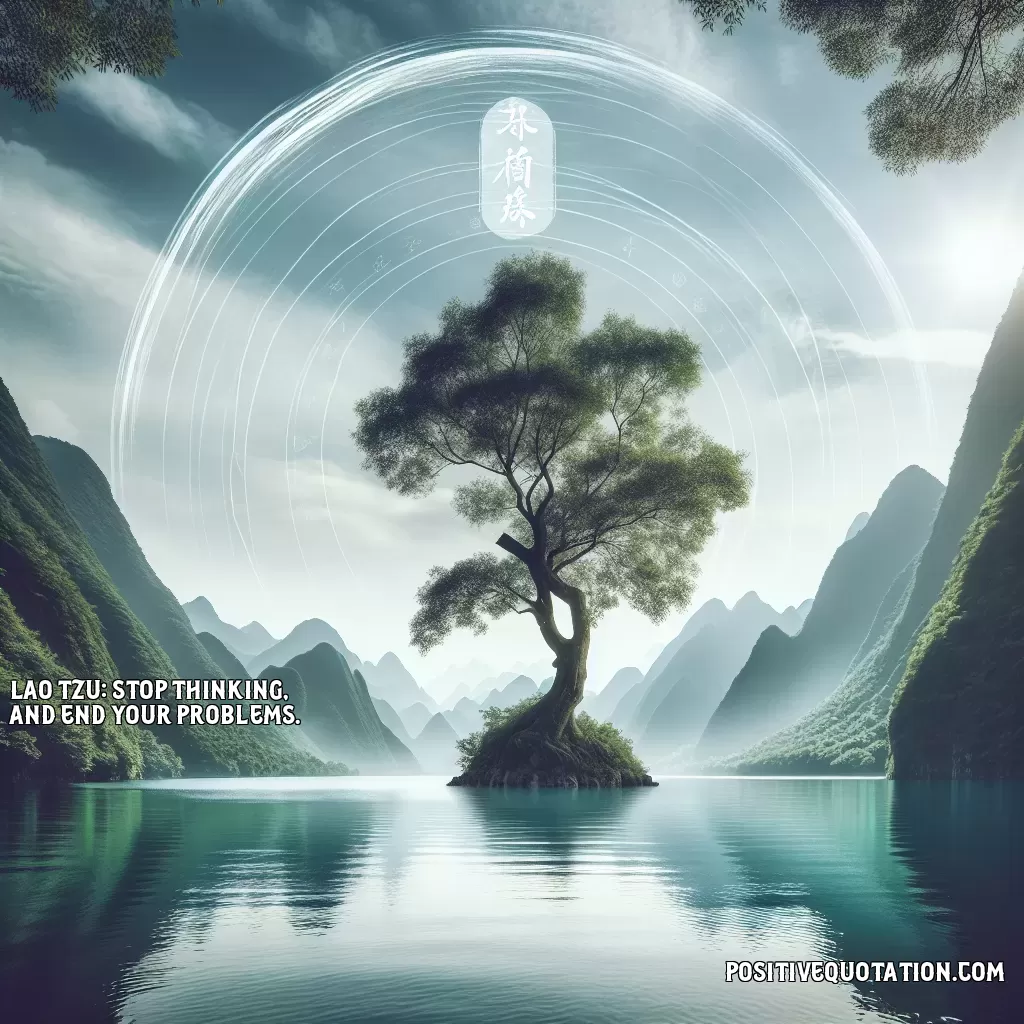
Lao Tzu: Stop thinking, and end your problems.
Author: Lao Tzu
👁️ 13 views
The quote “Stop thinking, and end your problems” by Lao Tzu can initially seem counterintuitive in a world that often emphasizes the importance of critical thinking and problem-solving. However, delving into the philosophical context, particularly Taoism, provides a richer understanding of its meaning. Lao Tzu, the ancient Chinese philosopher and the reputed author of the Tao Te Ching, is associated with Taoism, a spiritual and philosophical tradition that teaches the interconnectedness of all things and advocates living in harmony with the Tao, the natural order of the universe. The idea behind this quote is not to discard thought entirely, but to recognize the limitations and problems arising from overthinking. By “thinking,” Lao Tzu refers to the mental chatter and constant analysis that can clog our minds, leading to worry, anxiety, and stress. The incessant cycle of overanalyzing situations and projecting fears onto potential outcomes can create problems that are more imagined than real. Incessant thinking can cause one to detach from the present moment, disconnecting from the peace and clarity that arise from simply being present. Lao Tzu encourages embracing stillness and mindfulness as a means to access deeper wisdom, suggesting that by quieting the mind, one can gain clarity and perspective, allowing solutions to arise more naturally. This principle is echoed in practices like meditation and mindfulness, which foster a state of being where one can transcend individual concerns and connect with a larger, more harmonious flow of life. Thus, the quote aligns with the Taoist philosophy of wu wei, or effortless action, which teaches that by letting go and being in harmony with the natural unfolding of events, life transforms into a series of opportunities to be met with grace rather than obstacles to be deciphered and solved.
Quote By: Lao Tzu
Lao Tzu, an ancient Chinese philosopher and writer, is best known as the founder of Taoism and the author of the "Tao Te Ching," a foundational text that expounds on the principles of living in harmony with the Tao, or the Way. Traditionally believed to have lived in the 6th century BCE, his teachings emphasize simplicity, humility, and compassion, influencing not only Chinese philosophy and religion but also various aspects of art, politics, and culture throughout history. His enigmatic life and wisdom have made him a pivotal figure in Eastern thought.
Bio added on: 2025-02-15 03:30:42